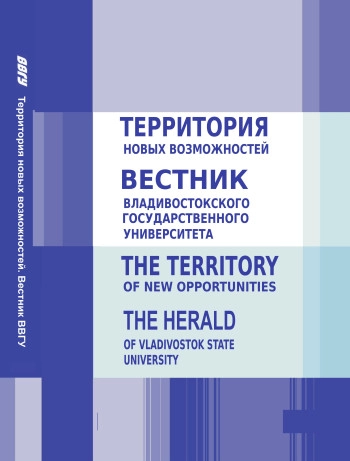employee
This study explores the development of a multidisciplinary textbook, utilizing the "9 Windows" framework from the Theory of Inventive Problem Solving (TRIZ) to analyze educa tional systems. The study examines the possibilities and limitations of cross-sensory systems and justifies the necessity of studying schematization and other formalization methods, as well as foundational aspects of culture and communal life in various social systems. These elements contribute to achieving an adequate level of situational and cognitive awareness. Based on the hypothesis of the multisensory nature of future educa-tional environments, the study proposes a textbook format that integrates ele-ments of comics and lubok (traditional Russian folk prints). The comic format is used to depict situational developments, while the lubok format presents a generalized thematic panorama. Such panoramas may take the form of meta-phorical cognitive maps that employ a universal visual language. The comic format can be adapted for multiple languages simultaneously, with texts and illustrations tailored to different psychological pro files of students. The proposed formats are accompanied by original illustrations. The suggested textbook format is designed according to the "4C" approach – Collective, Cognitive, Configura tional, and Convergent – within the cogni-tive infrastructure of a situational center.
education, systems analysis, knowledge transfer, cross-sensory maps, formalization, profiles, comic, lubok, metaphorical maps, "4C" approach.
1. Filimonov V.A. Draft short overview course "Selected engineering issues". Ontology of design. 2022; 12 (4): 494–504.
2. Filimonov V.A. Draft cross-technological textbook for three heads of the Zmey – Gorynych. Omsk scientific readings: Materials of the All-Russian scientific and practical conference, Omsk, December 11–16, 2017. Omsk: Omsk State University; 2017. P. 1089–1091.
3. Filimonov V.A. Proteins in a cell as a metaphor of cognitive pharmacy in teaching mathematics. Actual problems of teaching mathematics at a technical university. 2016; (4): 155–159.
4. Filimonov V.A. Modernization of Russian education: a homeopathic option. Modern science: problems and prospects of development: Collection of articles of the VII International Scientific and Practical Conference. Omsk, February 28, 2023. Vol. 2. Omsk: Omsk Humanitarian Academy; 2023. P. 62–66.
5. Filimonov V.A. "UMKA": a beehive workshop of a cognitive artel. Mathematical and computer modeling: Collection of materials of the X International Scientific. Conf., Omsk, February 10, 2023. Omsk: Omsk State University; 2023. P. 239–241.
6. Filimonov V.A. Sensory Substitution: Formalization, Interpretation, Subject. Knowledge – Ontology – Theory (KONT-2017): Materials of the All-Russian Conference with the International participation, Novosibirsk, 02–06 October 2017. Vol. 2. Novosibirsk: LLC "Digit Pro"; 2017. P. 134–137.
7. Linksman R. How to study any subject quickly. Minsk: Potpourri; 2003. 288 p.
8. Edwards B. Discover the artist in yourself. Minsk: Potpourri; 2019. 368 p.
9. Komensky Ya.A. The world of sensual things in pictures, or the image and name of all the most important objects in the world and actions in life. Moscow: Uchpedgiz; 1957. 351 p.
10. Stewart Y. The secrets of the disaster. Moscow: Mir; 1987. 76 p.
11. Klein G., Bauman Y. Mathematics in comics. Moscow: KoLibri, Azbuka-Atticus; 2021. 216 p.
12. Kenji I., Hiiragi Yu. Entertaining physics. Quantum mechanics. Manga. Moscow: DMK Press; 2016. 256 p.
13. McCloud S. The creation of a comic book. Moscow: Beloe Yabloko; 2019. 272 p.
14. Velichko N.K. We draw in the style of a Russian splint. Moscow: Hobbiteca LLC; 2016. 82 p.
15. Mandzhieva A.O. Model of formation of humanitarian thinking among future engineers in the process of university education. The territory of new opportunities. The Herald of Vladivostok State University. 2024: 16 (3): 193–201.
16. Poddyakov A.N. Complicology. Creating developmental, diagnostic and destructive difficulties. Moscow: Publishing House of the Higher School of Economics; 2014. 157 p.
17. Burgess D. Learning as an adventure: How to make lessons interesting and exciting. Moscow: Alpina Publisher; 2015. 75 p.
18. Reflexive theater of the situational center 2007: collection of articles. Omsk: Omsk State Institute of Service; 2007. 140 p.





